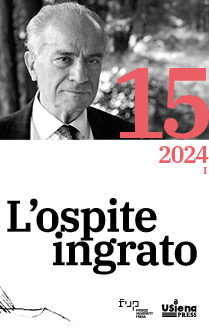Una rivoluzione simbolica nel campo letterario italiano. Il carteggio fra Cesare Cases e György Lukács (1953-1958)
Published 2024-07-18
Keywords
- Cesare Cases,
- György Lukács,
- cultural transfer,
- literary theory,
- literary history
- literary criticism,
- marxism ...More
How to Cite
Copyright (c) 2024 Michele Sisto

This work is licensed under a Creative Commons Attribution 4.0 International License.
Abstract
The correspondence between Cesare Cases and György Lukács includes around 160 letters written between 1953 and 1970. This essay focuses on the first period (1953-1958) and in particular on Cases’ attempt to bring about a change in the orientation of literary criticism and, consequently, of literary production in Italy, by translating some of Lukács’ key texts and adopting his peculiar critical method. In the letters, the “apprentice” and the “master” thoroughly discuss Cases’ position-takings in three main areas: 1) general theory of literature (along the model of Lukács book Il marxismo e la critica letteraria, 1953), 2) literary historiography (along the model of Breve storia della letteratura tedesca, 1956) and 3) militant criticism (along the model of Il significato attuale del realismo critico, 1957). By advocating Lukács’ Marxist aesthetics against the competing aesthetics of Croce, the Italian Communist Party, the existentialists, the phenomenologists, etc., Cases attempts what Pierre Bourdieu calls a “symbolic revolution” within the Italian literary field.

